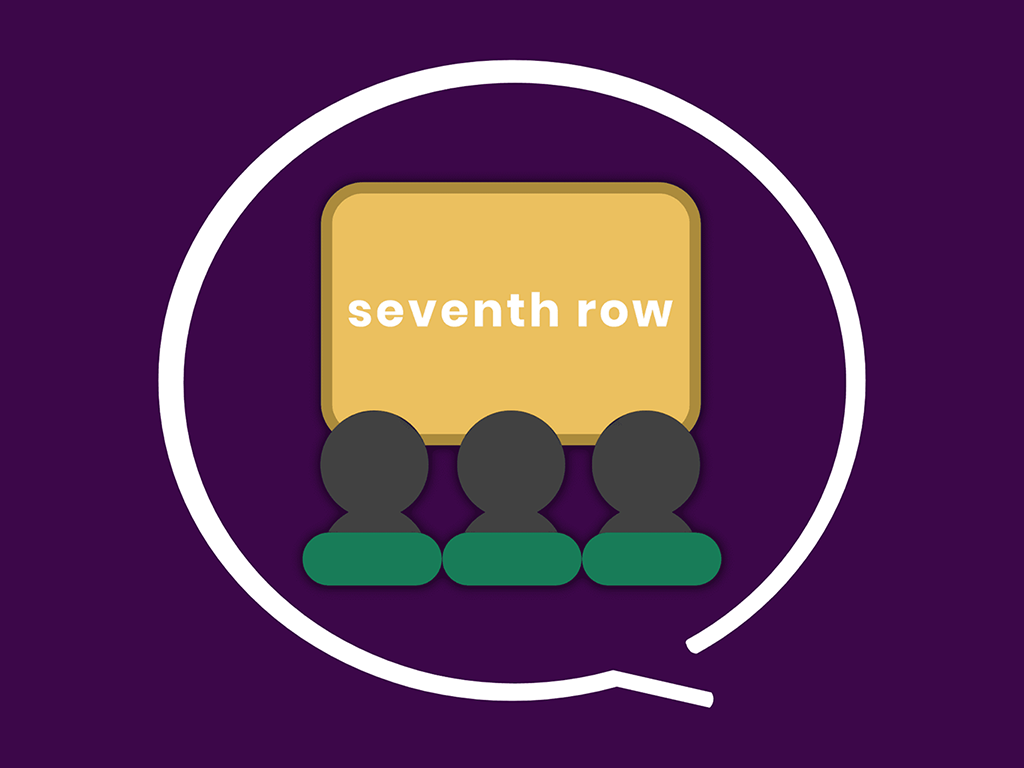I'm so happy that I got to talk to Orla and learn about Seventh Row, "a Canadian not-for-profit publication dedicated to in-depth film and theatre criticism." I'm always looking for solid film sites to add to my reading list and this one is really great. I have no idea how I hadn't heard of it before but am glad that it's finally on my radar. Orla talks more about it in the interview, so I don't want to give too many upfront details, but I will say that it's refreshing to read long-form, in-depth analysis instead of just another quick review.
Our WhatsApp connection was a little spotty, but we made it work. Please enjoy the interview, where we talk about beloved female-directed films, Seventh Row, and of course, Orla's talk at the Final Girls Berlin Festival. This conversation has been edited and condensed for clarity.
Interview with Orla Smith
Woman in Revolt: Since I will unfortunately not be at FGBFF to hear your talk, can you give me an overview of what it's about?
Orla Smith: The thesis of my talk comes from a book published by the website I work for, Seventh Row. Back in October, we released an e-book called "Beyond Empowertainment: Feminist Horror and the Struggle for Female Agency." It's a twenty-four-chapter book with (I think) eight different contributing writers, including me. We worked on it for about one year. It's a look at the state of modern horror cinema... about women and what feminist horror means to a bunch of different writers. We went into that project without a real thesis for the book, hoping that all of these different people's ideas would gather together to form some kind of conclusion about feminist horror. Luckily, it did.
It was really interesting to see all those pieces come together. What we found is that in recent years, there's been a move from external horror to more internal horror. External horror is rooted in the kind of classic horror cinema, especially about women. We define it as "Slasher films." It involves a woman who faces an external threat (that often represents something patriarchal) and fights back against it. In recent horror films, we see women fighting against themselves and their own demons. There's really not a set villain aside from the main character themselves. "Raw" (Ducournau, 2017) and "Thelma" (Trier, 2017) are two examples of this type of film. The talk discusses this recent shift and focuses on the female characters' agency over what's being done to them.
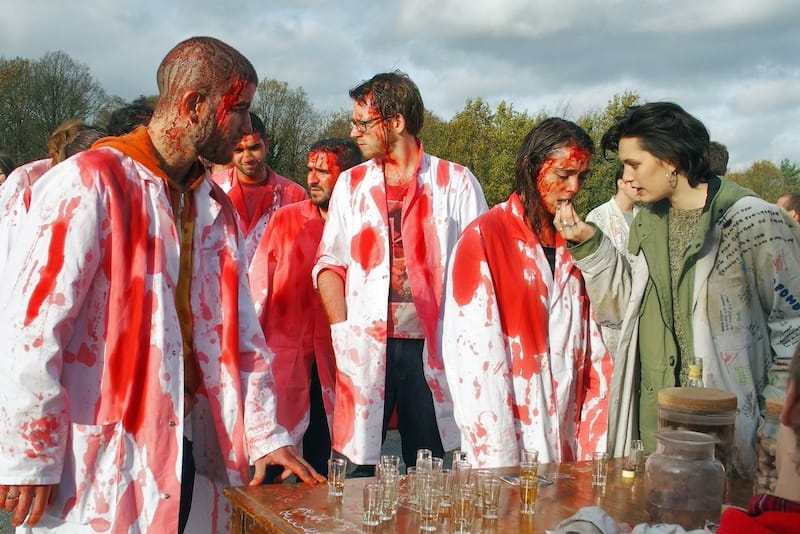
Do you notice any difference when looking at female-directed or female-written horror versus male? Do you think that a rise in women in horror has led to this at all?
I give some examples in my talk. I know a lot of other people like "Lady Macbeth" (Oldroyd, 2016) and "Beast" (Pearce, 2018) and "Ex Machina" (Garland, 2015), which aren't explicitly horror films, but genre films. They're all directorial debuts from white guys and go with this external narrative approach. They have these female protagonists who turn psychopathic and murderous, but the messages that they purvey feel a bit shallow to me. There is a move at the moment toward featuring "strong women" on screen. I have a fear that some people think, "Oh, yeah, I can capitalize on that," without really understanding what it's actually like to live under the patriarchy. It's more complicated than just stabbing someone. I think that's one side of it where people are trying to capitalize on the shift.
We can probably attribute most of it to this rise in women-created horror films. There are also some examples of men who make great films that really take the struggle of women into consideration. It just takes someone who's willing to actually listen to women and understand the experience, rather than just being like, "Oh, I want to make money."
I remember being really frustrated with "Ex Machina" because it was a well-made movie with the illusion of a strong female protagonist. If examined even a little bit closely, the bullshit is impossible to ignore. I hate to generalize, but a lot of these movies [with female protagonists] that are written and directed by men just don't have anything interesting to say. It's like somebody took a good concept and executed it without actually thinking about any type of motivation.
The examples I talk about often are characters who are described or coded as psychopaths. It's interesting because by calling these women psychopaths or making them into a literal robot with feelings [in "Ex Machina"]... it's like taking the easy way out instead of examining what it's really like to live under the patriarchy.
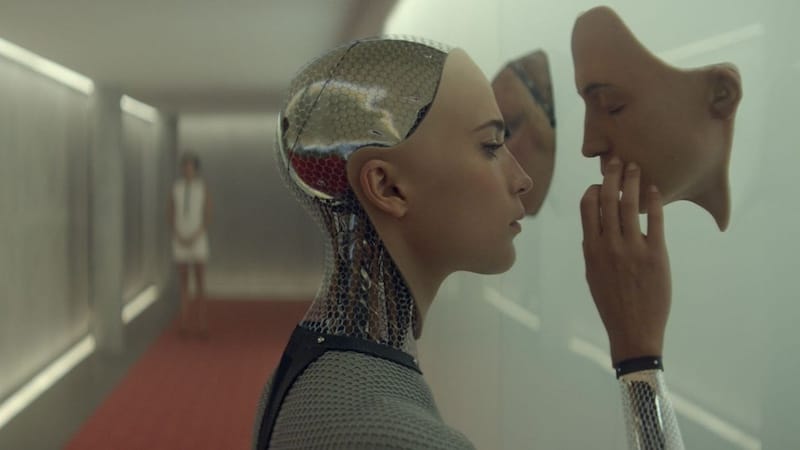
Can you tell me a little bit about Seventh Row? I was sadly unfamiliar with it until right before this interview.
Absolutely. I'm really happy and proud to work for Seventh Row. I work remotely with Alex Heeney, who's the Editor in Chief and works from Toronto. I joined the site about three years ago as a writer. Shortly afterwards, I joined Alex as an editor. We kind of run it together at the moment. We are a Canadian based site with an almost entirely female editorial board. We have a focus on covering films by women directors, marginalized directors, and films seeking distribution.
One of the main flagship bits of content that we've launched over the last few years is our book. I think "Beyond Empowertainment" was our tenth book. We release one every three months. They're e-books at the moment, but hopefully at some point they will be in print. Our books take deeper dives into a particular topic or director. With our director books, we like the idea of creating our own canon. Often, female directors aren't canonized because they've only just been given the opportunity to flesh out their filmographies and make films on a regular basis. We like to canonize people kind of early and create our own canon.
We've made books about Céline Sciamma, Joanna Hogg, and Lynne Ramsay, along with topics like documentary cinema and feminist horror. We tend to, when we are focusing on a particular film, interview everyone who worked on it: the directors, actors, cinematographers, editors, costume designers, production designers, sound designers. You get a very comprehensive picture of how a film is made. It's a really unique way of working, and I'm very, very happy to be doing it.
I love that you're doing e-books and bringing more attention to female directors. It's often really hard for me to find good, in-depth analysis or information when I'm working on WiR.
We've written the first books ever about Céline Sciamma and Joanna Hogg, which is crazy to me because there's so much to analyze about their work that even we can't cover in one book. People, write more books about female directors! They are very interesting.
Seriously. I love visiting bookstores and checking out the film section when I travel. No matter where I am, there are rarely any books on female directors. I bought one good encyclopedia ["The St. James Women Filmmakers Encyclopedia: Women on The Other Side Of The Camera"] from a secondhand store in Detroit, but it's difficult to find singular books that contain more targeted pieces of film criticism... or even interviews, screenplays, and memoirs. There's just a total lack of focus on women.
You can usually find a book on Agnès Varda. Then recently, there was a book published about Sofia Coppola. That's probably about it.
It's sad that there are so many great female directors and creators that a lot of people don't know about because they're never discussed.
My favorite director of all time is Kelly Reichardt. We're just about to embark on a book about her that is coming out in April.
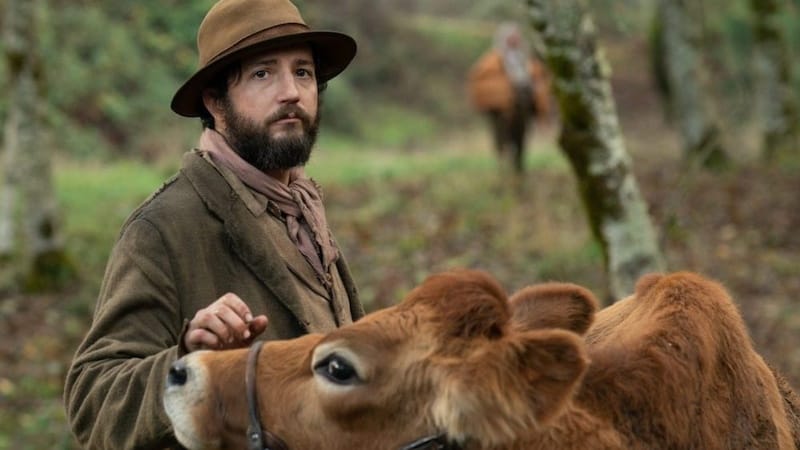
I love her... the collaboration with Michelle Williams, especially. All of her films have been great in a quiet way. I think that's maybe why they don't get as much attention as they deserve. Some of her films are admittedly "difficult," like "Meek's Cutoff" (2010). She's a hard director to pin down. I'd love to read a book on her work because she's fascinating.
She does make quiet movies, but they also have such a range to them. She made a thriller with "Night Moves" (2013), and it's very quiet, like any Kelly Reichardt movie, but also incredibly tense and thrilling. There's a great diversity in her films, which are about very specific types of people in a very specific part of the world. Almost all of her films are set in Oregon. We're going to hopefully publish at least one essay about every single one of her films, and then go really deep on her new film, "First Cow" (2020), which I'm so excited to see.
Me too. There are a bunch of female-directed movies coming out this year that I can't wait to see, like "Promising Young Woman" (Fennell, 2020), and I just hope they get some attention. It's great that Seventh Row exists, and I can't believe I didn't know about it before. There's also a podcast?
Yes, there's a podcast. We release new episodes every week, and we try to avoid talking about any one single film. We find that our discussions are more interesting when we're comparing films and drawing connections between them. We just talked about the new "Little Women" (Gerwig, 2019), comparing it to the 1994 film (directed by Gillian Armstrong). And I think today [which at this point, was weeks ago], we're doing this interview about "1917" (Mendes, 2019) and "Jarhead" (Mendes, 2005). I love doing the podcast. It's similar to the process of writing articles and e-books, but in discussion form.
I'll subscribe. I've been waiting for someone to do an in-depth comparison of my two favorite versions of "Little Women."
We've got four people on that podcast, which is more than usual. It was really fascinating because everyone had completely different ideas about which one was better. We had a die-hard 1994 fan, and then someone who hated it. It was interesting to see us all come around to each other's points of view by the end of the episode. I actually recommend that one highly because I learned a lot listening to it. I gained a new appreciation for both films.
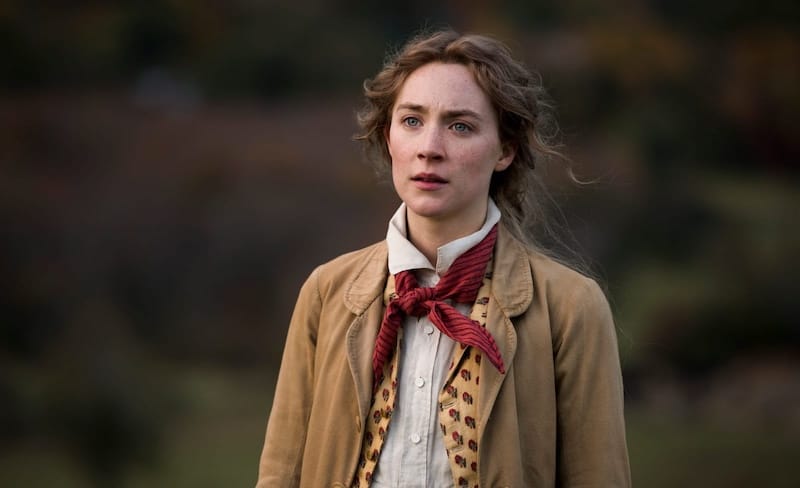
You're doing the podcast, writing e-books and articles, editing... It sounds like you have a lot going on simultaneously. Is there any one area of film criticism or a particular genre that you like to focus on? Is horror your niche?
Our horror e-book came out about a year and a half ago because we realized that there wasn't enough horror criticism on our site. Horror is actually my favorite genre of film. I go to the cinema to feel things, and I think horror is probably the most intense emotion. A great horror film is like candy to me, but it's very hard to do right... and there's a dearth of good horror films that get mainstream attention. This might be why we didn't have as much criticism on our site as I would have liked.
In general, the great thing about Seventh Row is that if you write for us, you're not assigned movies. If I go to a festival, there's nothing specific that I have to cover. I try to watch as much as possible, and then I write about any movie that inspires me. What excites me most about festivals -- whether big like TIFF or smaller like FGBFF -- is the opportunity to find films that nobody is talking about but that are amazing. There's such a joy in going really deep on those films and convincing people that this is what they should spend their time seeing. A particular genre of film would be hard to pin down. We've always had conversations about what makes a Seventh Row film. From our perspective, it's just whatever inspires us.
I like that approach because it leaves you open to draw inspiration from anywhere instead of trying to eke it out of films you have to write about.
There are websites that want to have their say on every film. I respect that approach, but on our site — especially because we have a small editorial team — we just can't cover everything. We focus on covering a small amount of beloved films in a lot of detail.
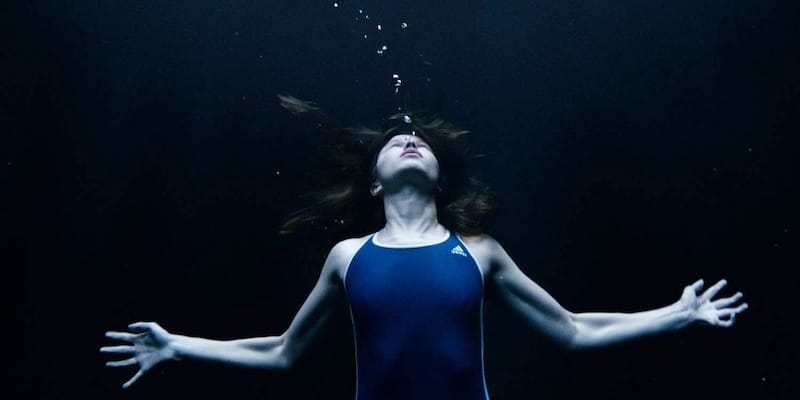
That's basically what I do for WiR. I'm only one person, so I just write about whatever interests me, whether old or new. It could be an interview with a writer like you or an essay about how much I hate Mr. Big from "Sex and the City." I try not to participate very much in social media, but it's hard to look at film Twitter and see all of the immediate hot takes on things that I've kind of ignored because I don't have the time. It's overwhelming to try to keep up with it all.
I spend most of my film criticism time on Seventh Row, but I occasionally do freelance. There are certain websites where, if you cover a festival for them, you have to leave the screening and immediately file your review within the next hour. That terrifies me. At Seventh Row, we only feel qualified to write our essays once we've seen the film like two or three times and have given ourselves a month or two to ruminate on it. That's how I'm used to working because when I leave the cinema, I don't know exactly what I think. Films need time to cement in your brain, and Twitter doesn't really allow for that. I will definitely admit to spending more time on Twitter than is healthy, but it's never good for my appreciation of film.
I went to South by Southwest last year and people were in line for screenings, writing reviews on their phones. If I had to do that, my reviews would be trash. My brain doesn't work that way. I also dislike the idea of putting something on the Internet that I haven't thought through enough. If I make a hasty judgment about something and then change my mind, I don't want anything negative out there that I later regret. I actually don't even like going to or covering festivals because seeing more than 2 films in a day is just too overwhelming for me.
I went to TIFF this past year for the first time. Since I work for a Canadian website, I was luckily able to stay with people from Seventh Row. The flight there was eight hours, and then within a day or two, I tried to watch five movies in a day. By the third movie of the day, I was having trouble staying awake. I kept trying to give my tickets away so that I could get some sleep. It was great fun in the end, but it's hard to stay awake, let alone immediately write interesting reviews.
I know you've been publishing some reviews from Sundance. Did you see anything there, or in general over the past few months, that you really enjoyed?
Well, Sundance... I'm still making my way through the screenings, so there are some I haven't seen yet. I think the best thing I've watched so far is Ariane Labed's short film, "Olla" (2019). I really like her as an actress, but she's also got such great prowess as a director. She was so interesting to talk to. I haven't seen it, but another film that we covered remotely is Swedish director Amanda Kernell's "Charter" (2020). We covered her first film, "Sami Blood" (2016), which my colleague Alex loved. She says this film is also really fantastic. No one's really talking about it from Sundance because it's Swedish. I'm hoping to catch up with that soon.
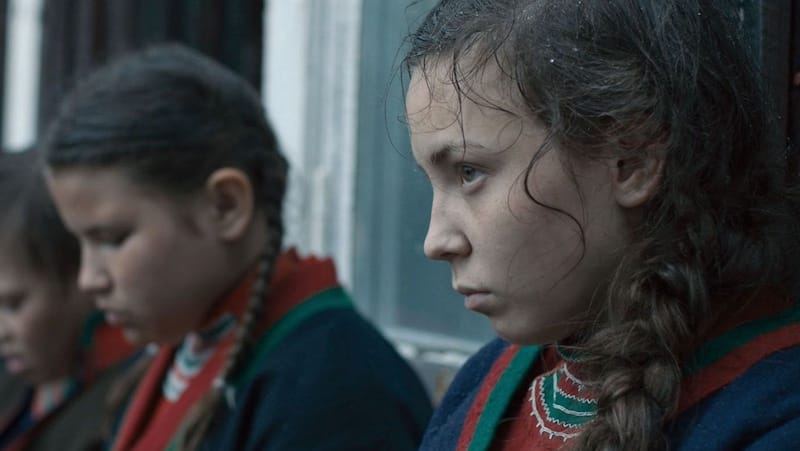
The most interesting film I've watched in recent weeks from the last year is the French film "Les Misérables" (Ly, 2019), which is an adaptation of the original book but sort of like a reckoning with modern France's relationship to it. It's set in the same place in France where that story took place, but it's about modern police brutality in Paris. It's a great debut film that is so cleverly plotted. It's rare to see an ensemble film that manages to balance every single plot thread so perfectly. It's nominated for foreign film Oscar [it lost to "Parasite" (Joon-ho, 2019)] and I'm really rooting for it because it got nominated over "Portrait of the Lady on Fire" (Sciamma, 2019), which was my favorite film from last year.
Mine, too!
We're working on a book about that film right now, so I'm 100% behind it. At the same time, I'm really glad that the nomination went to another great film. I recommend checking it out whenever it's released... it's not here [in the UK] for three months. Hopefully, other parts of the world will get to see it sooner.
I haven't seen "Les Misérables," but it's on my list. I cried for what felt like hours after seeing "Portrait of a Lady on Fire." I've been a fan of Sciamma for a long time, and it's been really cool to watch her develop as a director. I think this film is by far her best.
I've spent the last month or two watching all of her films for this book. It's amazing that all four of her films are just so great. "Portrait" is one of those rare films where you're like, "I have to call this perfect," because it seems like she thought about every single frame and every single edit. We managed to interview her for about an hour for our book. She talked about how she choreographed the breathing and footsteps of her actors to a particular rhythm because she just knew exactly what she wanted. She's a genius. It's been very interesting to delve into her work.
I mean, choreographing breath and footsteps? That's something that never would have even crossed my mind.
I don't even know how it's possible to think that granularly.
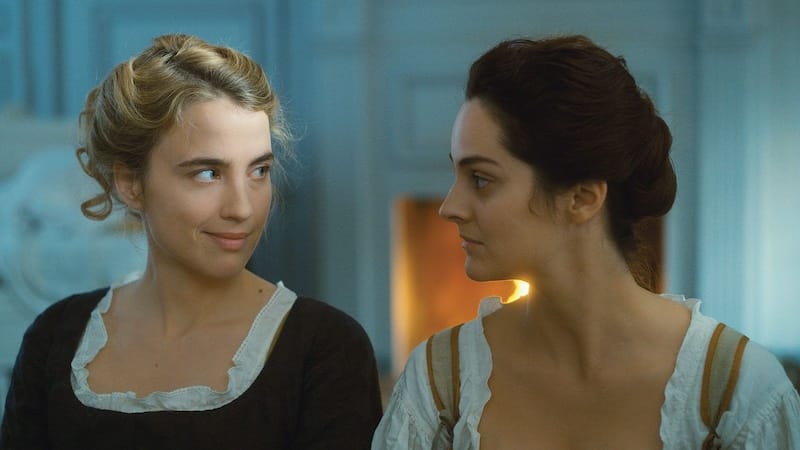
She's magic. When does the e-book come out?
It's out on Valentine's Day, February 14, which is also the film's release date. There are three interviews: with Céline Sciamma, Adèle Haenel, and Noémie Merlant. Sometimes actors are very non-specific because it's quite hard to verbalize what you're doing, but both of them [Hanel and Merlant] are so eloquent about technique and the specific choices they each made to create their characters.
I'm very excited about the book and am glad other people feel the same way. We put a lot of work into all of these books. We're a very small team. It's basically just me and Alex doing most of the editing with help from an editor-at-large, associate editor, and a small group of writers. We only work on these books because we really, really love it. It means a lot to know that people are actually reading and appreciating your work.
Definitely. Every writer wants to know that they're not just screaming into the void.
If you want to follow Orla online, check out her Twitter and work on Seventh Row. One cool thing that I should mention is that Seventh Row has a book club. If you're interested in several e-books, you can buy a yearly subscription that allows you to read all that are published in that year 📚

